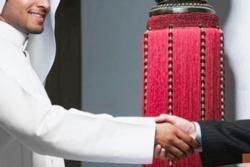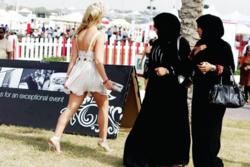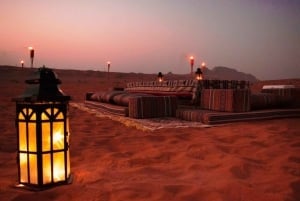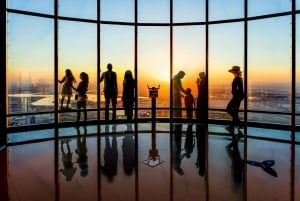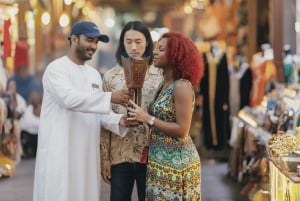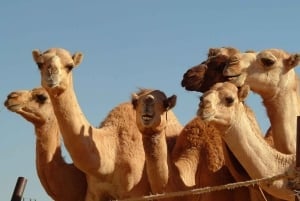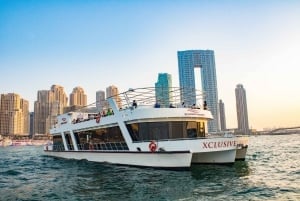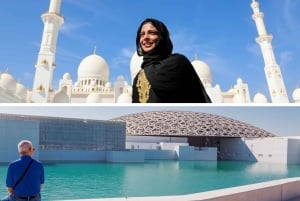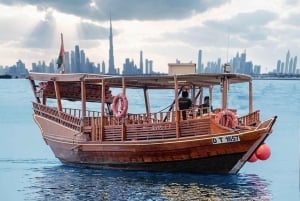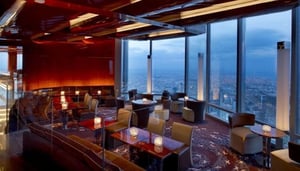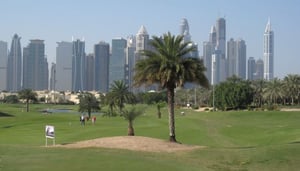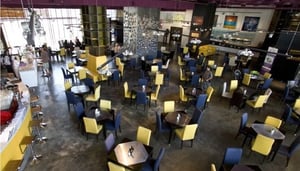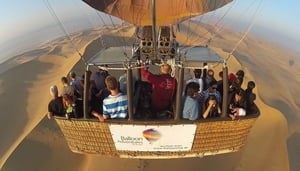Social Customs
Shaking hands is an important social custom in the Arab world. As a sign of friendship, a handshake will generally take longer than it would in the West. It is also important to shake hands when leaving. However, it should be noted that some Muslim women do not shake hands with men. It is therefore wise to allow a Muslim woman to initiate a handshake. In banks for example, where many of the employees are Muslim women, you are advised to avoid handshakes as you might have your hand left hanging in the air.
When meeting with an Arab, you are usually offered tea or coffee in addition to other refreshments, refusal of which may be considered insulting. Arabs are very proud of their reputation for great hospitality and may be offended if this hospitality is rejected. Eating or offering things should be done with the right hand rather the left. Tea is usually served sweet and dark and normally in a small glass cup. A taste for this tea is easily acquired and it is surprisingly refreshing, particularly on hot summer days. Arabic coffee is usually served in a small cup too. If the meeting is at an Arabic home, you should normally remove your shoes before entering. Sitting with your soles pointing at someone else is considered impolite and insulting.
A person's clothing and general appearance is particularly important in Arab society. Office wear for men is light trousers, a shirt and tie. Jackets are only worn for important meetings and formal occasions. Ladies should wear a light dress or long sleeved blouse and skirt. Away from the office, light summer clothing is suitable for almost the entire year. The general dress code in Dubai is quite relaxed, although women should not wear clothing which is too revealing. Men should always wear a top in public. However, swimwear is acceptable at the poolside and on beaches.
In public, UAE nationals choose to wear their traditional dress. For men this is the 'dishdash(a)' or 'khandura', a white full length shirt-dress, which is worn with a white or red checkered headdress, known as a 'gutra'. This is secured with a black cord called an 'agal'.
For women it is the 'abaya'; a long loose black robe that covers their normal clothes along with a headscarf called the 'sheyla'.
Care should be taken when photographing in Dubai. It is best to avoid photographing Arab women, military buildings or installations, consulates and police stations. It is advisable not to ask an Arab man about his wife, even if you know him or her very well. When exchanging pleasantries it is best to simply ask about the family.
It should also be noted that Dubai has a very young and cosmopolitan Arab population, with many individuals who have lived and travelled in the West. Many Arabs in Dubai (particularly the younger generation) are, therefore, unlikely to be too offended by minor breaches of social custom. Nonetheless, as with any foreign country, social and cultural norms should be respected if you want to enjoy and successfully conduct your business affairs.


